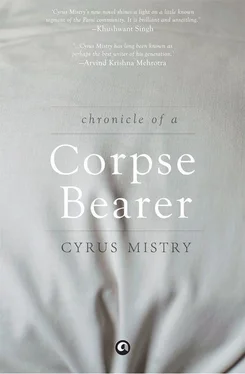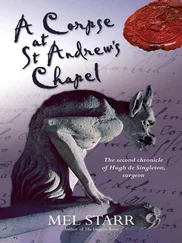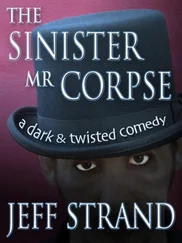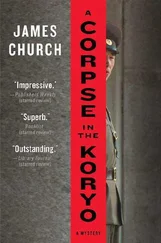The caretaker looked incredulous as he heard Fali’s inventory of his requirements. Meanwhile, Farokh whispered something urgently to Fali in Gujarati, and Fali replied in English,
‘Why, it’s only a box. We could easily—’
Now the caretaker interrupted, speaking harshly and contemptuously.
‘Don’t want you buggers messing around my workshop. .I can see how respectable you-all are, holding a funeral at two in the morning.’
‘There were complications. . You must believe us. The deceased is a sad, unfortunate person who has already suffered a great deal. . Let us not make things more unpleasant for him—’ said Fali.
But Buchia cut him short. Presumably tired and exasperated, he had decided it was time to take matters in hand and adopt the one tactic he found most effective in such situations: that is, to show rage. Or perhaps he did genuinely take offence:
‘Who’re you calling buggers, eh?’ suddenly raising his voice, he shrieked. ‘You bloody pimp! You swollen-headed greedy pig of a Gomes! You’ve been leading me on from yesterday. Haggling, haggling. . Every chance you get you want to squeeze out some more. You’re taking advantage of our difficulty. Even now at the last minute — I know what I’ll do. Give me back my money. Give me back my money! We’ll go find some other burial plot.’
‘You can have your money back at the gate,’ said the caretaker. ‘On your way out. First load the corpse back into the van.’
‘What!’ yelled Buchia, now really annoyed at being crossed. ‘I want it now, you understand? Then we’ll put the corpse back in. Right now! Hand it over, shorty!’
‘At the gate, I said. On your way out.’
‘When I say now, I mean NOW!’ screamed Buchia, like a madman, and lunged murderously at the caretaker.
Despite the brightness of the night, Buchia hadn’t noticed that the man he was attacking was standing in front of a freshly dug pit. The big-headed dwarf nimbly stepped aside at the very last moment, and Buchia would surely have crashed into Joseph Kanga’s intended grave but for a reflex split-second parrying on his part. Instead, he fell hard, sideways, against a stone; and while doing so, managed to grab the caretaker’s arm and pull him down as well. The latter wasn’t hurt, though. He quickly got back on his feet and dusted himself, while louring at the man sprawled at his feet in pure disgust.
But Buchia must have been in intense pain, for he started weeping. Not very loudly, he tried to suppress his sobs, yet he was loud enough for everyone to see that something had gone terribly wrong.
‘Be brave, sir, don’t cry,’ Fali consoled him. ‘At least you didn’t fall into the grave. Then we would have had to bury you here only. .with or without a coffin!’
But Buchia was in no mood for jokes. He wouldn’t even let the boys help him up. From the way he held himself, and gradually manipulated himself on to his haunches, it seemed like he had broken a bone, possibly his left collarbone. The pain must have been agonizing, but Buchia kept his presence of mind. Putting his right hand in his pocket he pulled out a bunch of notes and gave them to Farokh.
‘Count out eight hundred rupees and give them to him. Let’s finish what we came here to do.’

Next morning, when the mourners started arriving for Joseph’s funeral, and his body was missing, all hell broke loose. Buchia, whose injury had not been attended to all night, was trembling, and delirious with pain and fever. Many of the senior-most trustees including Aloo Pastakia, Tehmton Anklesaria, and the Punchayet’s Chief Executive, Burzhin Hirjibehdin, had decided to attend the funeral as a mark of respect and courtesy to Nariman Kanga. Coyaji was there, too.
Buchia was in no position to answer any questions. At night, he had stubbornly refused to seek admittance to any hospital after the last shovel of earth was heaped on Joseph’s coffin, saying he wanted to spend what remained of the night in his own quarters. But it had turned out to be the worst night of his life; for he could neither sleep nor ward off the fanciful torments his wakeful brain fabricated in anticipation of what the morning would bring. The pain must have been bad, too. Mercifully, during the outbreak of all the commotion over the missing body, Farokh and Jungoo quietly bundled him off to the Parsi General.
The redoubtable Nariman Kanga was completely distraught when he heard that his son’s body was missing — but only for a few minutes. He recovered quickly and phoned his friend Ignatius Strickham, now Commissioner of Police, who promised to immediately visit the Parsi General Hospital to cross-examine Buchia, and launch a probe into this devilish piece of trickery enacted no doubt by some extremist splinter group of the orthodoxy.
In the condition he was in, for Buchia to see the red-faced Englishman towering over his hospital bed firing questions at him must have put the fear of God in him, possibly precipitating his untimely end. He didn’t die of a broken collarbone, of course, but during that cold night when he had wrestled — or tried to wrestle — a dwarf to the ground, he had apparently caught a severe chill, that swiftly progressed into double pneumonia from which he never recovered.
On his deathbed, under the gimlet eye of Ignatius Strickham, Buchia confessed to kidnapping the corpse of Joseph Kanga and revealed the place of his interment. Shortly after, he died. Nariman Kanga dropped all charges against the miscreants who had kidnapped Joseph’s body. Nor did he desire that his son’s body be exhumed, or renew his efforts to arrange for him the Zoroastrian funeral he had so desired while still alive. Instead, he decided to let him lie in the selfsame grave undisturbed, and built a modest monument of flawless white marble in remembrance of his son at the site. It can still be seen at the Sewree Christian cemetery, smeared with dust and bird droppings, with its slightly cryptic but finely etched inscription still very legible:
Gentlest of souls,
Savant and scholar extraordinaire,
Who sought in death as in life to be
A morsel of tasteful
Charity .
Here lies Joseph Nariman (Maloney) Kanga (1902–1947)
For years, the forest on the hill had been my refuge .
Thick woods might more precisely describe the tangled profusion of fruit and flowering trees that covered the hill. Thickest near the summit where the crude path that led to the rusty iron gate of a small white fire temple was almost lost in tall grass and bramble; here grew casuarinas, banyans, date palms, mango, pear and so many flowering bushes and trees whose names I do not know. On occasion, I would spot a hare or a snake here; sometimes peahens, once, even a deer. In this strangely enchanting Eden, I felt completely at home.
Then, one day I saw a forest nymph, lying cradled in the low branch of a tree. After that, everything changed for me. .

Difficult to say when exactly my interest in the world began to wane. It didn’t happen in an instant, or a day.
Yet, if compelled to choose a moment, I would have to pinpoint the day Sepideh died. Remember this, though: the entire strike, Farida’s prolonged schooling, my brief intimacy with Buchia, my evening with Rohinton at the Taj, the abduction and forced interment of Joseph Kanga, India’s independence, the departure of the British, all these happened long after Seppy died and I can’t remember feeling so completely uninvolved in any of these events while they were happening, as I now feel from most public affairs. Perhaps it’s just that I’ve grown too old to care.
Читать дальше













